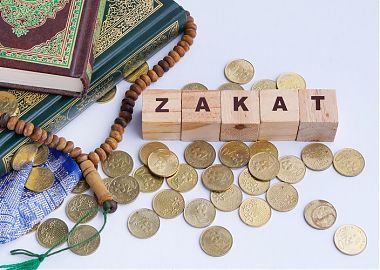
Zakat
Zakat Guide
Calculating and Paying Zakat: The Latest Nisab Values
Zakat, one of the Five Pillars of Islam, is an obligatory form of charity for eligible Muslims. It involves giving a portion of one’s wealth to those in need. Here’s how you can calculate and pay your Zakat using the latest Nisab values:
-
Understand Nisab: Nisab is the minimum threshold of wealth that makes a person liable to pay Zakat. It is based on the value of gold or silver. As of now, the Nisab value is determined by the weight of 87.48 grams of gold or 612.36 grams of silver.
-
Calculate Your Wealth: Add up the total value of your assets, including cash, gold, silver, investments, and other valuables. Exclude personal items like clothing, furniture, and your primary residence.
-
Deduct Debts: Subtract any outstanding debts you owe from your total assets. Only consider the net wealth after deducting debts.
-
Check If You Reach Nisab: If your net wealth exceeds the Nisab threshold, you are obligated to pay Zakat. If it falls below, you are not required to pay.
-
Calculate Zakat Amount: The standard Zakat rate is 2.5% of your net wealth. Multiply your net wealth by 0.025 to find the Zakat amount due.
-
Distribution: Distribute your Zakat to eligible recipients, such as the poor, needy, orphans, and those in financial hardship.
-
Pay Your Zakat: You can give your Zakat directly to those in need or donate it through reputable charitable organizations.
Remember that Zakat is a spiritual obligation and a means of purifying your wealth. By fulfilling this duty, you contribute to the welfare of the community and strengthen your faith. May your Zakat be accepted and bring blessings to those in need.
“The alms are only for the poor and the needy and those employed to collect (the funds); and to attract the hearts of those who have been inclined (towards Islam); and to free the captives; and for those in debt; and for Allah’s Cause, and for the wayfarer (a traveler who is cut off from everything); a duty imposed by Allah. And Allah is All-Knower, All-Wise.“ [Al-Quran 9:60]
- Do you know how Much you need to pay?
- Calculator of Zakat

Sadaqah
- Sadaqah Jariyah.
- Building Shelters or Medical Facilities
- Providing Clean Water and Sanitation
- Education Support
- Sponsor an Orphan
